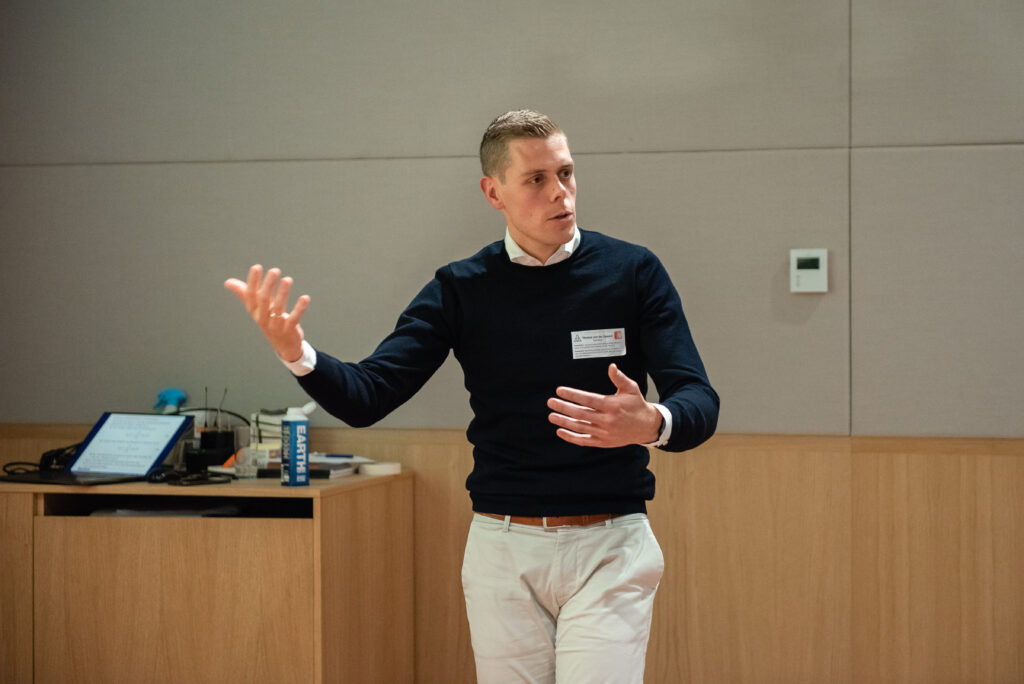Thomas van der Zwaard
Rabobank
Valuation Adjustments with an Affine-Diffusion-based Interest Rate Smile

The slides shown at the event can be found here.
Affine Diffusion (AD) dynamics are frequently used for Valuation Adjustments (xVA) calculations due to their analytic tractability. However, these models cannot capture the market-implied skew and smile, which are relevant when computing the xVA metrics. Hence, additional degrees of freedom are required to capture these market features. In this paper, we address this through an SDE with state-dependent coefficients. The SDE is consistent with the convex combination of a finite number of different AD dynamics. In this paper, we combine Hull-White one-factor (HW) models where one model parameter is varied. We use the Randomized AD (RAnD) technique to parameterize the combination of HW models. We refer to our SDE with state-dependent coefficients and the RAnD parametrization of the HW models as the rHW model. The rHW model allows for fast semi-analytic calibration to European swaptions through the analytic tractability of the HW dynamics. A regression-based Monte Carlo simulation is used to calculate exposures. In this setting, we assess the effect of skew and smile on exposures of interest rate derivatives.
Thomas is a Quantitative Analyst at Rabobank, focused on Pricing Model Validation. He joined the bank in 2016 after completing his MSc. Since 2018 he is also a part-time PhD candidate under the supervision of Kees Oosterlee and Lech Grzelak, now at Utrecht University. His research focuses on improving modelling and numerical methods for Valuation Adjustments (xVA).
